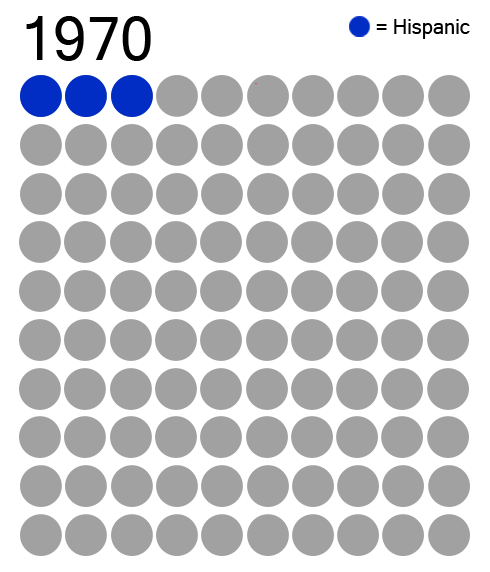[Para leer este artículo en español, haga click aquí.]
This story is part of The Salt Lake Tribune’s ongoing commitment to identify solutions to Utah’s biggest challenges through the work of the Innovation Lab.
[Subscribe to our newsletter here]
It was a hectic day for Tania Rodríguez as she hustled to serve her handmade churros to a seemingly endless line of customers at the 2021 Ogden Hispanic Heritage Festival, an annual celebration of Utah’s growing Hispanic population.
“We were crazy busy and that makes me very happy,” said Rodríguez about the festival hosted by Latinos United Promoting Education and Civic Engagement, known as LUPEC. “I was honored to be there because I’m very proud of my culture and my roots.”
More than 2,500 attendees got a taste of Latin American culture through businesses like Rodriguez’s Los Churros del Norte and music by Colombian and Chilean performers. People of all ages danced and sang along while celebrating the varied Latino community that calls Utah home.
In addition to commemorating Hispanic Heritage Month, which runs through October 15th, the event had a social mission—to better the lives of Ogden’s increasing Latino population with educational and civic resources as a means of bolstering representation.
50 years of growth for Utah’s Hispanic community
Utahns identifying as Hispanic per hundred people

Hispanic Utahns comprise five times more of the state population than 50 years ago. Then, 3% of Utah’s population was Hispanic. Now, it’s 15%. In Ogden, a third of residents are Hispanic, as well as over half of students in the city’s school district, according to the federal Department of Education’s Office of Civil Rights.
Eulogio Alejandre, co-founder of LUPEC and lifetime educator who has taught from the elementary to college levels, has witnessed the growth of Ogden’s Hispanic community in the 45 years he’s lived in Utah.
Alejandre said that when he came to Ogden in 1977, most Mexican-born residents knew one another, often through the Catholic Church.
“There was a lack of celebration of culture and the bridging of cultures,” he said. “So we decided to create an organization that would initially celebrate culture, but eventually be a community builder.”
So with the help of Luis Lopez, another lifetime educator and currently Ogden’s only Latino city council member, LUPEC was born.
Alejandre and Lopez believe education is at the heart of making sure Ogden’s Latino community succeeds, so LUPEC connects students with scholarships and grants. For some students who don’t qualify for government assistance, like undocumented immigrants, they offer scholarships to universities and trade schools.
“We promote education in everything we do because we believe it puts us on a level playing field with other cultural groups in our society,” said Alejandre.
Striving for a representative Ogden
One of LUPEC’s main goals is for Ogden to reflect the rising local Latino population in positions of power.
“The United States is a participatory government,” said Alejandro. “It requires citizens to participate in self-governance. You can’t have that when one cultural group leads in government and creates the rules for the rest of us.”
They encourage members of the Latino community to run for office, attend school board meetings and vote if they can. They’ve had success supporting one school board candidate, Arlene Anderson, the first Hispanic member elected in twelve years.
Priscilla Martinez, a 32 year-old with experience working with the community in healthcare, education and child services, is one of those hopefuls. She is running for Ogden city council on a platform of community building, affordable housing and sustainability for future generations. Martinez campaigned at the festival.
“Being able to be there as a candidate, I was proud to be Latina and running for city council,” said Martinez. “I can show people I’ve got them. I understand and can advocate for them.”
She also helped found the Weber County chapter of Voto Latino. The organization, which is dormant due to lack of funding, sought to get more Latinos registered to vote and educated about their options.
“We realized there were a lot of misconceptions,” said Martinez. “Some people asked why they should register to vote, thinking their vote wouldn’t matter. But if you look back to my primary, every vote counts. I won that primary by two votes.”
Karen Thurber, a volunteer with voter registration nonprofit Voterise and the League of Women Voters, helped sign people up to vote at the festival.
Thurber emphasized the importance of the upcoming November election, with four out of seven Ogden City Council seats up for election.
“This could change the direction of the city for decades,” Thurber said, “and if people don’t vote, they won’t have a voice in it.”
Embracing cultural diversity
In the future, LUPEC is excited to expand its outreach to continue bridging the gap between different cultural groups in Ogden. They received a grant to host intimate conversations between county officials and Ogden locals over traditional Latin American dishes to help address disparities in education, housing and jobs.
To Alejandre, a way to squash misconceptions and nurture multicultural bonds is by having people from diverse backgrounds congregate to learn from one another.
“We need to see people of color at the rodeo and the county fair. We want to see more white people at our celebrations like Cinco de Mayo and Día de Los Muertos,” said Alejandre. “We want to learn from one another and get to know each other, because the more we know each other, the more community we build.”
Tania Rodríguez, the owner of Los Churros del Norte, can say with confidence that Ogden has evolved into a more welcoming place.
She moved to Ogden 20 years ago from Chihuahua, Mexico, and didn’t always feel accepted in the city, recalling a time she was heckled in a store by a stranger for speaking in Spanish to her mother.
“Nowadays, it’s way better,” Rodríguez said, noting she’s more comfortable with her Mexican accent. “I couldn’t imagine making my life in any other place. Ogden is where I belong.”